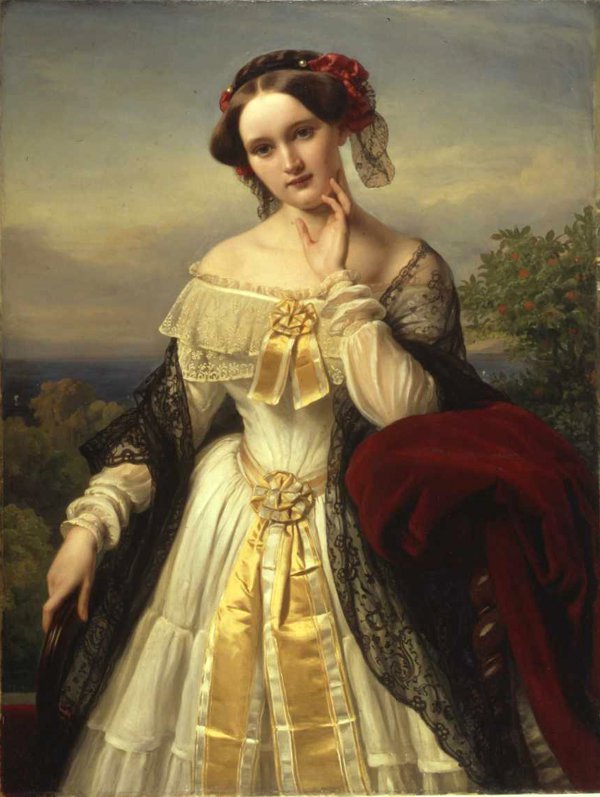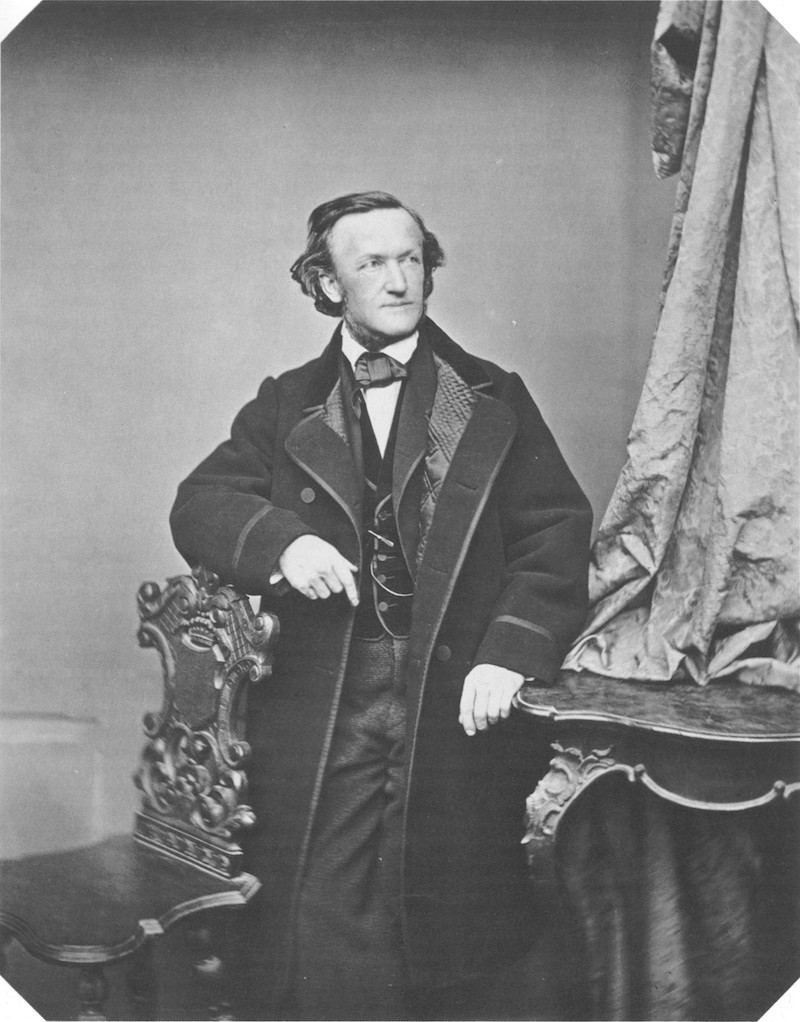Picasso and Dora Maar. Lars Von Trier and Björk. Alfred Hitchcock and Tippi Hedren. Three towering male creatives and three women who suffered in serving as their muses. In the wake of the #MeToo movement, the exploitative nature of such artistic relationships is coming under greater scrutiny. Naturally, within the world of classical music such stories also exist and deserve to be explored.
 Mathilde Wesendonck by Karl Ferdinand Sohn, 1850
Mathilde Wesendonck by Karl Ferdinand Sohn, 1850
a dream inexplicable / forced to silence
One of the few non-operatic works by Richard Wagner to have gained wide recognition is the set of five songs known as the Wesendonck Lieder. The title refers to Mathilde Wesendonck, the author of the poems he set. She is widely recognised as a catalyst for his creativity in the 1850s, which Wagner acknowledged by calling her his ‘dear Muse’. As the wife of a wealthy banker, she was able to assist the exiled composer, who moved into a small house on her estate. Although the exact nature of their relationship is still disputed, Wagner clearly found in Mathilde the romantic companionship that had long left his marriage, as evinced in the voluminous correspondence they exchanged of which only his letters survive. Our focus here is on the erasure of Mathilde from Wagner’s creative output which serves as an example of silencing within a hegemonic, patriarchal discourse.
As was typical of 19th-century muses, Mathilde became a projection of the male artistic fantasy, serving as an externalised source of his creative power, something voiceless and ultimately discarded. This role was symbolised by her gift to him of a ‘gold pen of indestructible writing power’ which he used for many decades. He addressed her as ‘child’ and, looking back over their relationship, she believed that Wagner viewed her as a ‘white sheet of paper’ which he was ‘determined to write all over’.
in delusion embrace / a desolate emptiness
This was not the first act of erasure to befall Mathilde. In fact, ‘Mathilde Wesendonck’ was, quite literally, an invented figure. She was born Agnes Luckemeyer, and married Otto Wesendonck in 1844. It was he who began calling her Mathilde, the name of both his deceased first wife and an older sister who had brought him up after their mother’s death. In a real-life version of Hitchcock’s Vertigo, Otto wrote to his former mother-in-law, describing Agnes as looking remarkably like the dead Mathilde. Even before her first encounters with Wagner, she was a fantasy created by men.
Many of Wagner’s own creations are unthinkable without Mathilde. In 1853 he dedicated his Album Sonatato to her, the first work of note he had written in six years, and their relationship was memorialised in Tristan und Isolde, that paean to unfulfilled love. However, in the case of their most notable partnership, their collaboration over the Wesendonck Lieder, we see how Wagner’s ‘dominant instinct’ (as Nietzsche put it) came to the fore, with Mathilde being erased from her own co-creation. Whether or not this was deliberate is difficult to prove, and is in a sense almost immaterial; this pattern of assimilation and erasure simply exemplified the attitudes of the era towards contributory female voices.
 Richard Wagner by photographer Franz Hanfstaengl
Richard Wagner by photographer Franz Hanfstaengl
When the whole cycle was published in 1862, Wagner’s first version of the title page ran: “Five Dilettante-Poems for female voice, set to music by Richard Wagner”. No mention of Mathilde here, and the only adjustment in the published version was the omission of the word ‘dilettante’. This led many at the time to assume that Wagner was also the author of the poems, given his known practice for writing his own opera libretti. A more subtle elision of Mathilde’s voice occurred when Wagner conducted a birthday serenade beneath her window. Under the guise of a dramatic, loving gesture, he omitted her words entirely, replacing them with a solo violin in an orchestrated version of Träume (Dreams).
In a very direct way, Wagner saw these songs as catalysts for his greater creative endeavours. Two of them, Träume and Im Treibhaus (In the hothouse) served as ‘studies’ for Tristan und Isolde, and were reworked for the love scene in Act 2 and the Prelude to Act 3 respectively. Not only her words, but the songs themselves were consumed in this act of appropriation, undoubtedly giving the music a glorious second-life, but one which enabled her crucial role to be forgotten. Mathilde, ultimately, was just fuel for Wagner’s monstrous creative ego.
The dream alone is good
Mathilde’s disappearance from Wagner’s life was not just symbolic: after his first wife Minna intercepted a letter to Mathilde beginning “just out of bed: morning confession” and caused a scandal, Wagner had to leave Zurich in 1858. Alone in Venice, he compulsively documented his feelings in a diary he kept for Mathilde, an act which perpetuated her memory in an undisguised soliloquy. Inevitably, over time their connection weakened, and after Wagner’s second marriage, Mathilde faded still further from the picture. Wagner asked her to burn his letters, “for I do not want anything to remain that might suggest it was ever a serious relationship”, and the gold pen, that symbol of their connection, broke during the completion of the Ring Cycle. To appease his wife Cosima’s jealousy, Wagner himself glossed over their connection in his autobiography, referring to her as being “of unsound mind”. Mathilde was erased not only from the creative material, but in essence written out of his life.
a gentle rustling / fills the dark room with unease
This is not a call for retrospective justice for Mathilde, nor a vilification of Wagner for doing what artistic men have taken to be their right. However it should serve as a reminder that the celebration of a female muse often obscures a creator’s acts of appropriation and silencing. It illuminates historical power imbalances and social norms which in and of themselves may not seem particularly grave, and yet cumulatively work to shape the landscape, leaving women disempowered. Society seems primed for epistemic change, with the way open for women to insist that their voices be heard. The Agnes of today will not only keep her name: she will wield the golden pen herself.
All the in-line quotations are taken from Mathilde Wesendonck’s poems (trans. Rose Riebl)
Rose Riebl is a pianist and composer based in Melbourne. Her latest work can be found here
David Larkin is a Senior Lecturer in Musicology at the Sydney Conservatorium of Music, University of Sydney











Comments
Log in to join the conversation.